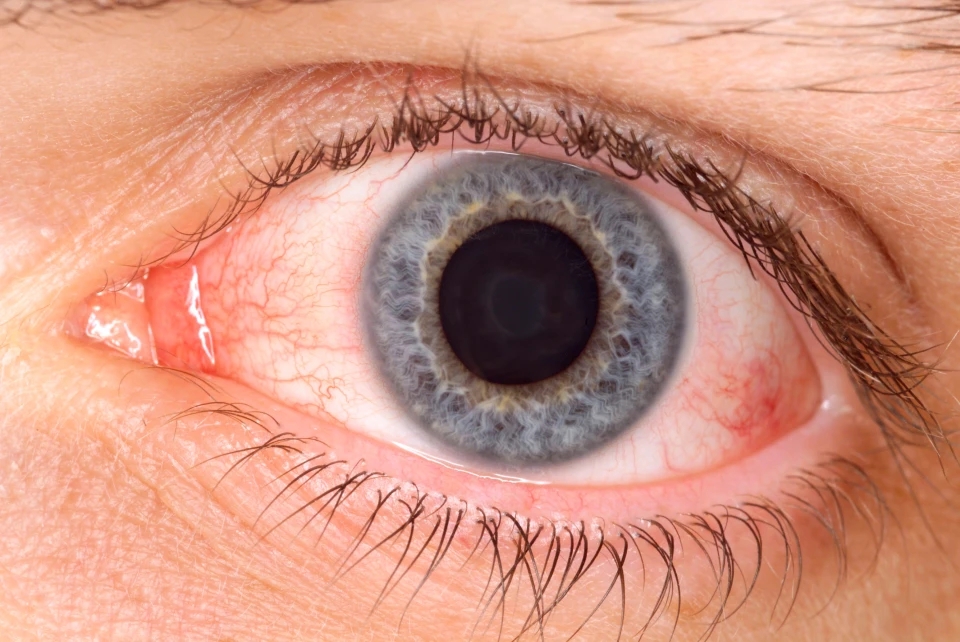THE Omicron Covid variant continues to spread -here are all the symptoms you should look out for, from headache or hair loss to pink eye.
There is a number of different symptoms you might have, including some you might not expect such as nausea.

A total of 229,666 cases have been reported in the UK today as Brits have been urged to be sensible when attending gatherings and parties ahead of New Year’s Eve celebrations.
It comes as a string of hugely positive studies show Omicron IS milder than other strains, with the first official UK report revealing the risk of hospitalisation is 50 to 70 per cent lower than with Delta.
Covid booster jabs protect against Omicron and offer the best chance to get through the pandemic, health officials have repeatedly said.
Trending In The News’s Jabs Army campaign is helping get the vital extra vaccines in Brits’ arms to ward off the need for any new restrictions.
While those infected with the Omicron variant might experience the traditional symptoms from the previous strains there are a few more symptoms you might not know.
- Headache
The most common symptom of Covid.
Virologist and Professor of Molecular Oncology, Professor Lawrence Young told the Sun that alongside fatigue, a headache is one of the symptoms that people with covid tend to have, especially those infected with the Omicron variant.
- Fatigue
Another symptom that presents early on to those with covid is fatigue. Covid-related fatigue would mean that people would feel extremely tired even after having rest.
- Sore throat
A scratchy throat is one of the earliest Covid symptoms.
According to data from the ZOE Covid App nearly half of people who tested positive for Covid complained about a sore throat.
However, it tends to be relatively mild and last no more than five days.

Follow our Covid live blog for all the latest news & stories
- A runny nose
A runny nose has been the second most common Covid symptom.
According to ZOE data around 60 per cent of those who tested positive reported having a runny nose.
Professor Tim Spector of King’s College London previously warned people to be alert as Covid symptoms are now looking more and more like the common cold.
- Sneezing
While sneezing is not a typical Covid symptom and is usually a sign of the common cold, the ZOE study has found that sneezing more than usual could actually be a sign of Covid in those vaccinated.
- Cough
Although a persistent cough is one of the most common covid symptoms, the ZOE study found that only four in ten people who tested positive have it.
- Fever
A common Covid symptom, a high fever means your body is reacting to the infection helping your immune system fight it off.
- Loss of taste and smell
A number of people who tested positive with the virus reported losing their sense of smell (anosmia) and/or taste.
Some have said that their sense has actually changed and things smelled differently to before or food tasted differently than it used to.
- Pink eye or conjunctivitis
According to Healthline, the virus enters the body’s cells through receptors for the enzyme called angiotensin-converting enzyme 2 (ACE2) by tricking it into thinking it’s the enzyme rather than Covid.
The ACE2 receptors are found in parts of the eyes, such as the retina and the epithelial cells that line the eye white and eyelid.
- Hair loss
Although hair loss is not a typical Covid symptom according to the American Academy of Dermatology Association hair shedding is quite common after a high fever.
Hair loss or telogen effluvium as it’s medically known happens when more hairs than normal enter their “shedding” phase of the hair growth lifecycle.
The three main symptoms of Covid-19 highlighted by the NHS are a new persistent cough, a high temperature and a loss of taste and smell and if you experience these you should get a PCR test.
According to research so far, Omicron appears to produce milder illness than the Delta variant did – especially for vaccinated people.







